Modern Day Passions & Obsessions
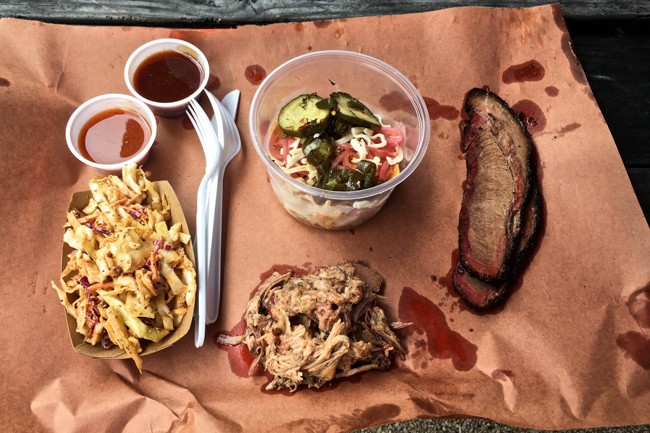
I work in a field that has one of the geekiest, most inquisitive and passionate set of customers that exists. Next to comic books, Pokemon, and Xena Warrior Princess memorabilia, I think whiskey appreciation is close to becoming one of the most analytical and life-consuming hobbies in the world among its more serious fans. I also happen to be working in a niche market at a store that specializes in unique, hard-to-find, out-of-the-way selections, where I'm the one actually going out there and sourcing these products, so take that initial geek factor and multiply it by ten when talking about my personal day-to-day encounters with whisky fans. All day long at K&L I have people emailing, calling, and tracking me down in the store to ask seriously esoteric questions about alcohol. I love helping people find a great bottle of booze. Nothing makes me happier, in all honesty, than helping someone who needs assistance—whether it's helping a customer remember the forgotten name of a wine or helping my 85 year old neighbor Miriam throw out her garbage when her hip is sore. My patience can be tested when people forget where they are and begin abusing that good will, but I learned this week in Austin that I am not alone in this delicate position of "craft" customer service. I learned from standing in lines and watching the meat-hungry customers around me that serious barbecue fans might be even more geeky than whisky nerds.
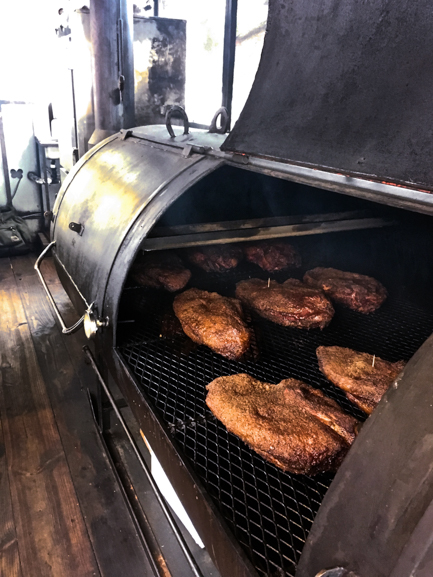
I'm far from a barbecue connoisseur, so I’m not the kind of person who's willing to stand in line for four hours for the legendary Franklin brisket (so, no, unfortunately I didn't get to try it). But I did happen to walk by La Barbecue in East Austin as they were getting ready to open, on my way back from the adorable Cat Cafe. I figured: why not go for it? The smells emanating from the food truck were incredible and I had heard from multiple sources this place was a serious contender for best BBQ in Austin. The line was only about five deep when I got there, but within minutes it had expanded to a snake of thirty-plus people. I was sixth, so I didn't expect to wait long. It was only when two guys begin holding up the line that I began to eavesdrop. "What temperature do you...?" I heard one of the men ask before his voice trailed off. As I listened closer it became clear that rather than ordering, these guys were trying to ask the pitmaster about his various methods and strategies for slow-cooking, as if there weren't two dozen hungry people waiting patiently behind them. They began listing off their own methods and their own preferences for dry rubs, ovens, cuts of meat, you name it. After a few minutes of this “shop talk” you could sense the restlessness from the people waiting patiently to get their lunch. To their credit, however, the guys at La Barbecue were friendly and professional the whole time. Barbecue, much like craft beer, just happens to be one of those things you can somewhat easily attempt at home (unlike distillation) so there's an entire army out there of DIY hobbyists looking to talk about their passion with established players in the game. Just look at the social media feeds dedicated exclusively to barbecue online where people all over the world are sharing their favorite creations, destinations, and recipes.
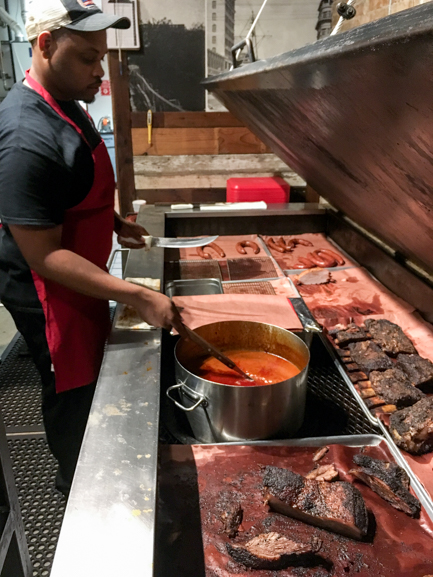
How was the food at La Barbecue? Absolutely incredible. But you can read about that topic from more experienced experts online. Of course, all the meat we had this week in Texas was incredible because they actually cook and season it. In the Bay Area food culture we have a completely different concept of beef. We’re looking at it from a wine-based perspective; one that values the inherent quality of the meat and—as with grapes—believes in preserving that original integrity as much as possible. We’re far more interested in how the cow was raised and how well the meat pairs with Bordeaux than we are in the actual cooking process. In fact, most people I dine with eat their steak rare because they want to actually taste the meat (me included). Texas barbecue, on the other hand, looks at meat from more of a whisky perspective. It’s not just about searing the meat on either side and slopping it down on a hot plate (we call that “cooking” in California for some reason); it’s more about the long game and the development of flavor under controlled and specific conditions over time. The scene in Austin also touts local and sustainably-raised meat, but then combines that Grade-A beef with tradition, science, and patience. These guys are cooking brisket in low heat ovens for more than fourteen hours, rendering the fat into pure silk and sealing in a succulence that must be tasted to be understood. But I want to make this clear: it’s not just the barbecue guys that are bringing flavorful meats to the Austin food scene. Every burger I had this past week was more flavorful than back home (and I had three). Every piece of bacon was that much more sizzling and savory (and I had bacon every morning). I had pork tacos on two occasions and they were simply out of this world. But, yes, the barbecue was the real show—I had it from Stubb’s and Cooper’s as well. Even the turkey was light years ahead of anything I had tasted previously.
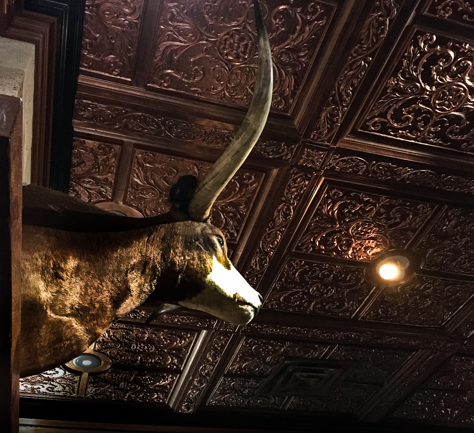
Meat is very much a thing in Austin. If you order a dish without meat, your server will likely ask you if you want to add meat to it. As we quickly learned, however, it’s not because the locals don’t appreciate fruits, vegetables, or grains (because there’s plenty of those things, too); it’s just because their Texas meat is so freakin’ good. My wife is practically a vegetarian and is not known to eat meat often, but I’ll be damned if she didn’t eat meat with every single meal. She ate more meat in the last four days than she’s eaten in the last year. I finally threw in the towel this morning and ordered a salad for lunch, the barbecue sauce practically oozing out of my pores at that point; but she went right back in and ordered more beef. It was like Freaky Friday—like we had switched bodies. There’s a culture of cooking in Austin, and I mean that in the most literal sense. It’s not just a simple foodie scene where people take photos of charcuterie and act like it’s interesting, but rather a devoted and experienced crowd of meat eaters who put flavor and texture above all else. Through processes that are honed, tweaked, and obsessed over in extreme detail, Austin pitmasters are constantly looking to outdo one another and raise that bar just a bit higher. Ask anyone in town where the best barbecue is and they’ll each give you a different answer—kind of like burritos in California.
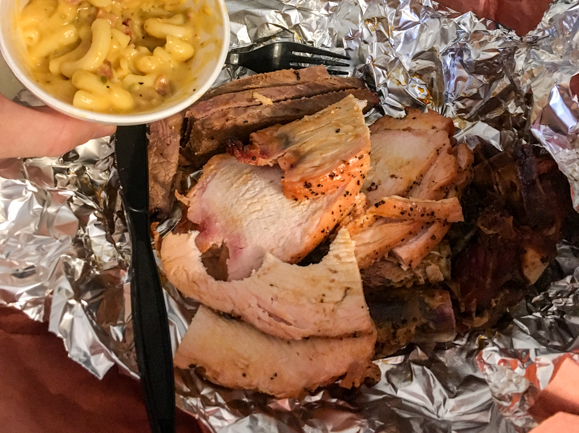
Sometimes when I travel and people on the road find out I work at K&L, they’ll want to pour me a small, local wine they’re proud of to see what I think. Usually it’s fine—nothing special—and I’ll be as polite and positive as I can be in return, but I’m spoiled because I taste so much great wine every single day. I have to imagine that’s what it’s like for a Texan to order meat anywhere else in the U.S. It must be a let down no matter where they go simply because they come from an advanced meat culture. They’re passionate about meat in a way that Californians will never understand because we don’t really push meat to its limits. I have to admit: we’re pretty good when it comes to cabernet and cocktails. But we have a lot to learn as it pertains to meat, mainly because we don’t geek out nearly as hard. We’re not nearly as passionate. We’re nerdy about other consumable things: like alcohol, bread, and gluten-free cookies. We’re worried about batch numbers with our whiskey, and organic farming with our produce, but I don’t ever see guys bothering cooks in the kitchen with scientific meat questions about temperature and time. Don’t worry, however, because the guys at La Barbecue told me they’re now doing pop-up trucks in LA every weekend. Hop in line, order some brisket, ask some questions, and let those dudes show you how real meat is done. You might want to get over there and check it out if you’re a Californian carnivore or a Texan transplant—it’s meat for people who obsess about meat.
-David Driscoll
